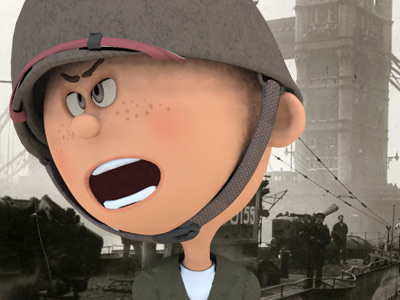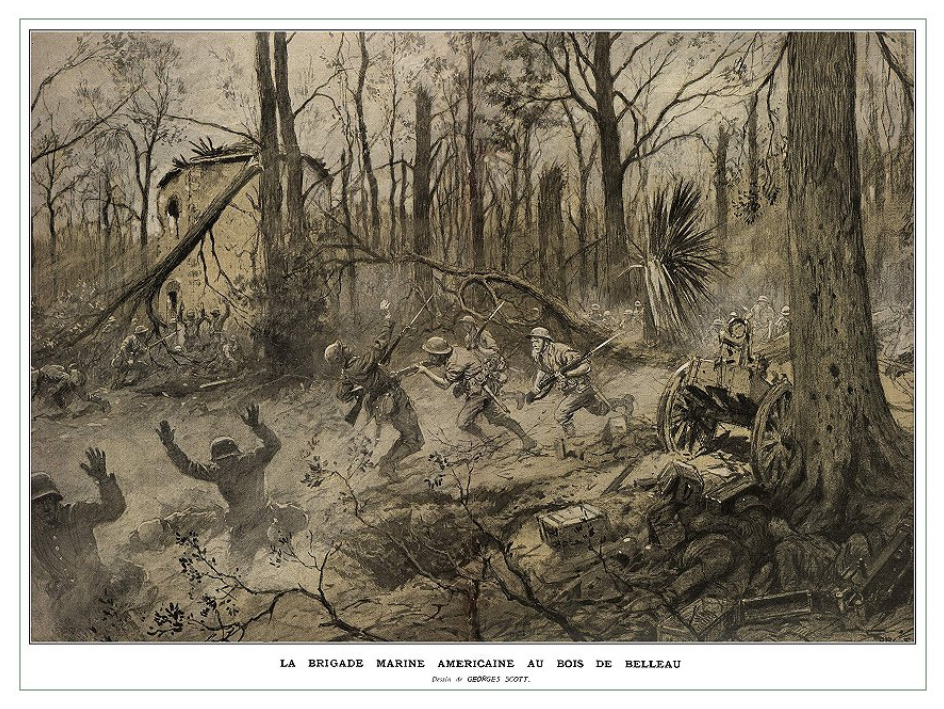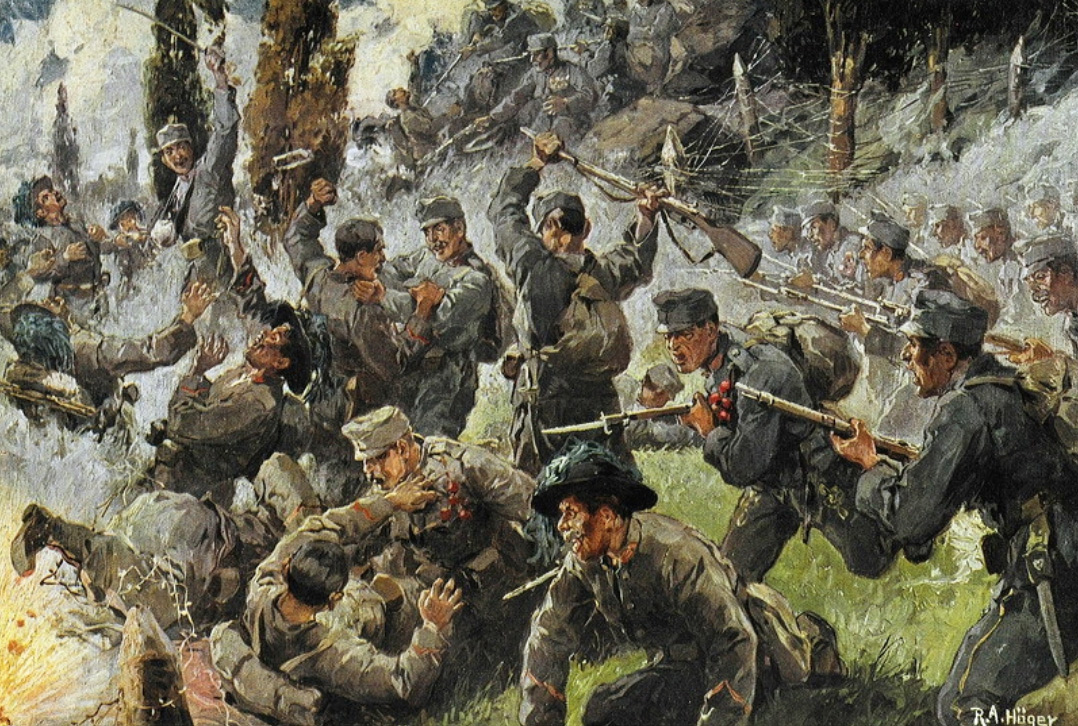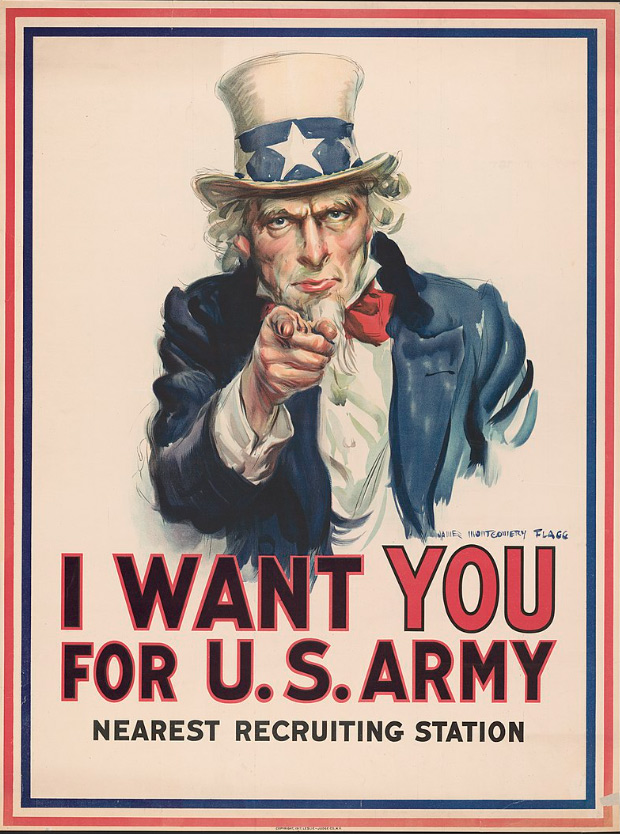World War I (1914-1918)
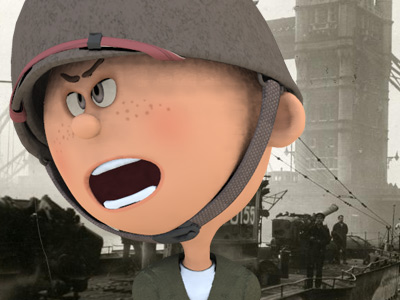
Battle of Limanowa
The Battle of Limanowa took place from 1 December to 13 December 1914, between the Austro-Hungarian Army and the Russian Army near the town of Limanowa (40 kilometres (25 mi) south-east of Kraków).
The Austro-Hungarian high command had assumed that the German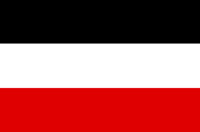 The German Empire, also referred to as Imperial Germany, the Second Reich, as well as simply Germany, was the period of the German Reich from the unification of Germany in 1871 until the November Revolution in 1918, when the German Reich changed its form of government from a monarchy to a republic. During its 47 years of existence, the German Empire became the industrial, technological, and scientific giant of Europe. success would weaken Russian
The German Empire, also referred to as Imperial Germany, the Second Reich, as well as simply Germany, was the period of the German Reich from the unification of Germany in 1871 until the November Revolution in 1918, when the German Reich changed its form of government from a monarchy to a republic. During its 47 years of existence, the German Empire became the industrial, technological, and scientific giant of Europe. success would weaken Russian Russian Empire was an empire and the final period of the Russian monarchy from 1721 to 1917, ruling across large parts of Eurasia. The rise of the Russian Empire coincided with the decline of neighbouring rival powers: the Swedish Empire, the Polish–Lithuanian Commonwealth, Qajar Iran, the Ottoman Empire, and Qing China. Russia remains the third-largest empire in history, surpassed only by the British Empire and the Mongol Empire. forces in the north and that the Galician front would remain quiet. Both these assumptions were incorrect.
Russian Empire was an empire and the final period of the Russian monarchy from 1721 to 1917, ruling across large parts of Eurasia. The rise of the Russian Empire coincided with the decline of neighbouring rival powers: the Swedish Empire, the Polish–Lithuanian Commonwealth, Qajar Iran, the Ottoman Empire, and Qing China. Russia remains the third-largest empire in history, surpassed only by the British Empire and the Mongol Empire. forces in the north and that the Galician front would remain quiet. Both these assumptions were incorrect.
Though the Habsburg 2nd army offensive opened on 16 November and met early success, the Russians proved stronger than expected and their 4th Army yielded little ground. Meanwhile, further south the Russian 2nd Army advanced across the San river and moved into the Tarnów area by 20 November. Further north, the Habsburg 4th Army, supported by the 47th German Reserve Division, moved onto the offensive in the last days of November.
In fierce battles around the towns of Łapanów and Limanowa, the Russian 3rd Army was beaten and forced to retreat east, ending its opportunity to reach Kraków. To avoid being surrounded, the Russian 8th Army also had to retreat, stopping its advance toward the Hungarian plains.
Results
The Russian threat to Krakow was eliminated and the Russians were pushed back across the Carpathians. The Austrian-Hungary Austria-Hungary, often referred to as the Austro-Hungarian Empire, the Dual Monarchy, or Austria, was a constitutional monarchy and great power in Central Europe between 1867 and 1918. Austria-Hungary was one of the Central Powers in World War I, which began with an Austro-Hungarian war declaration on the Kingdom of Serbia on 28 July 1914. forces claimed the battle as a victory.
Austria-Hungary, often referred to as the Austro-Hungarian Empire, the Dual Monarchy, or Austria, was a constitutional monarchy and great power in Central Europe between 1867 and 1918. Austria-Hungary was one of the Central Powers in World War I, which began with an Austro-Hungarian war declaration on the Kingdom of Serbia on 28 July 1914. forces claimed the battle as a victory.
HISTORY
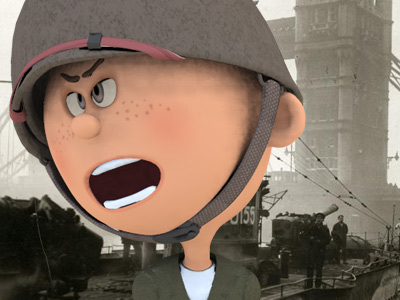
RESOURCES
This article uses material from the Wikipedia articles "World War", "World War I", and "Battle of Limanowa", which is released under the Creative Commons Attribution-Share-Alike License 3.0.
© Stories Preschool. All Rights Reserved.
